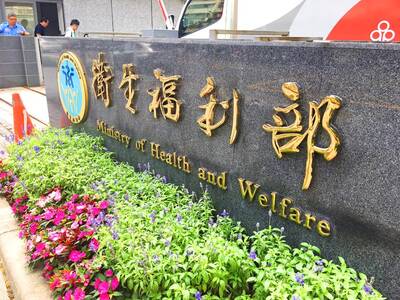While the nation now enjoys freedom of the press along with one of the most liberal political systems in Asia, these accomplishments would not have been possible without the sacrifices made by protesters during the Kaohsiung Incident, panelists attending a two-day conference to commemorate the Kaohsiung Incident said yesterday.
Looking back at the incident, academics debated the reasons behind the then-Chinese Nationalist Party (KMT) government's heavy-handed crackdown on the protest — including its political isolation following the rupture in relations with the US and domestic pressures for political change — and the implications of its action.
“The KMT government experienced one of the most spectacular breakdowns in foreign affairs in world history ... It used to be a permanent member of the UN Security Council that was able to veto the admission of Mongolia into the body,” Wu Chih-chung (吳志中), a political science professor at Soochow University, told the forum in Kaohsiung.
“A decade later, KMT government officials weren't even allowed to enter the UN building,” Wu said.
As a result, to cement its rule, the government turned to cracking down on domestic discontent as foreign pressure intensified, Wu said.
Wang Si-wei (王思維), an assistant professor at Nanhua University, said that losing the US as an ally was the last drop in the bucket for the government.
“The US was one of the few major allies left at the end of the 1970s ... The government lost all credibility on the international stage after relations broke off [in 1979],” he said, adding that the quick military trials of the defendants from the Kaohsiung Incident showed the government's insecurity.
The researchers said the 1970s was also a period where Taiwan's pro-democratic movement flourished, a series of changes that authorities were not yet ready to accept.
“The 1970s-era ushered in the rapid development of the nation's middle class, which was becoming increasingly interested in public affairs and change through popular movements,” said Chen Shi-hong (陳世宏), a researcher on the Kaohsiung Incident. “Some of these middle-class intellectuals formed the core of the new 'Tangwai' [黨外, or outside party] movement.”
He added that the arrests of the dissidents attracted more intellectuals, including former president Chen Shui-bian (陳水扁) and former premier Frank Hsieh (謝長廷), who became their defense lawyers.
Chen Yi-shen (陳儀深), a researcher at Academia Sinica, also drew attention to the government's inability to tell whether protesters shouting slogans such as “Long live the Taiwanese” were there in support of increased freedoms or Taiwanese independence.
“They couldn't decide if these slogans meant that the public wanted more liberties or were against the Republic of China,” Chen said, adding that in the end, “it didn't matter as they believed both to be crimes.”
The conference capped off a month of events held by the Kaohsiung City Government to commemorate the incident. A photo exhibition will continue until Dec. 23 at the city's Formosa Boulevard MRT station.

A group of Taiwanese-American and Tibetan-American students at Harvard University on Saturday disrupted Chinese Ambassador to the US Xie Feng’s (謝鋒) speech at the school, accusing him of being responsible for numerous human rights violations. Four students — two Taiwanese Americans and two from Tibet — held up banners inside a conference hall where Xie was delivering a speech at the opening ceremony of the Harvard Kennedy School China Conference 2024. In a video clip provided by the Coalition of Students Resisting the CCP (Chinese Communist Party), Taiwanese-American Cosette Wu (吳亭樺) and Tibetan-American Tsering Yangchen are seen holding banners that together read:

UNAWARE: Many people sit for long hours every day and eat unhealthy foods, putting them at greater risk of developing one of the ‘three highs,’ an expert said More than 30 percent of adults aged 40 or older who underwent a government-funded health exam were unaware they had at least one of the “three highs” — high blood pressure, high blood lipids or high blood sugar, the Health Promotion Administration (HPA) said yesterday. Among adults aged 40 or older who said they did not have any of the “three highs” before taking the health exam, more than 30 percent were found to have at least one of them, Adult Preventive Health Examination Service data from 2022 showed. People with long-term medical conditions such as hypertension or diabetes usually do not

MEDICAL: The bills would also upgrade the status of the Ethical Guidelines Governing the Research of Human Embryos and Embryonic Stem Cell Research to law The Executive Yuan yesterday approved two bills to govern regenerative medicine that aim to boost development of the field. Taiwan would reach an important milestone in regenerative medicine development with passage of the regenerative medicine act and the regenerative medicine preparations ordinance, which would allow studies to proceed and treatments to be developed, Deputy Minister of Health and Welfare Victor Wang (王必勝) told reporters at a news conference after a Cabinet meeting. Regenerative treatments have been used for several conditions, including cancer — by regenerating blood cells — and restoring joint function in soft tissue, Wang said. The draft legislation requires regenerative treatments

POLICE INVESTIGATING: A man said he quit his job as a nurse at Taipei Tzu Chi Hospital as he had been ‘disgusted’ by the behavior of his colleagues A man yesterday morning wrote online that he had witnessed nurses taking photographs and touching anesthetized patients inappropriately in Taipei Tzu Chi Hospital’s operating theaters. The man surnamed Huang (黃) wrote on the Professional Technology Temple bulletin board that during his six-month stint as a nurse at the hospital, he had seen nurses taking pictures of patients, including of their private parts, after they were anesthetized. Some nurses had also touched patients inappropriately and children were among those photographed, he said. Huang said this “disgusted” him “so much” that “he felt the need to reveal these unethical acts in the operating theater